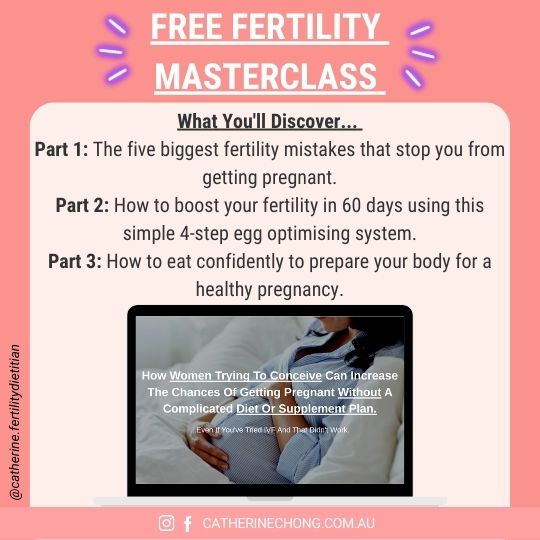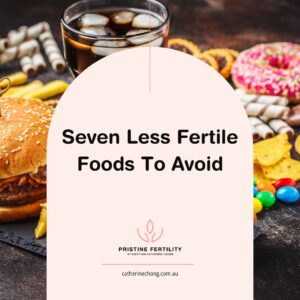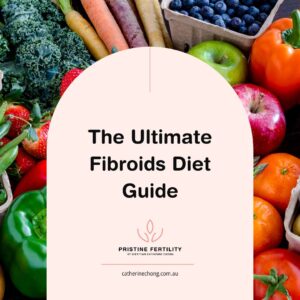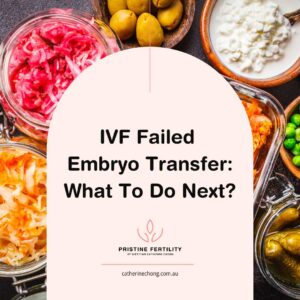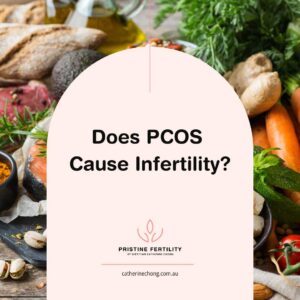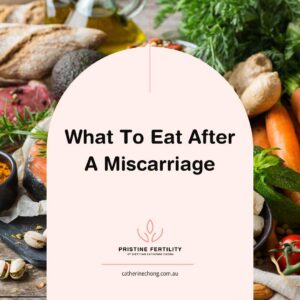Foods to Avoid During Pregnancy: Your Complete Guide for TTC and Pregnancy Safety
Whether you’re already pregnant or trying to conceive (TTC), it’s essential to prioritise your health and well-being. Maintaining a healthy diet during pregnancy is crucial not only for your health but also for the development of your baby.
This article will explore the best practices of which foods to avoid during pregnancy for food safety reasons, including for women trying to conceive. So you have the correct information and to make informed choices about what you eat during pregnancy.
Foods with High Bacterial Risk: Listeria and Salmonella Concerns
During pregnancy, hormonal shifts can weaken your immune system, making you more vulnerable to infections. Be vigilant of what you eat to lower the risk of foodborne illnesses that could harm you or your baby.
In Australia, while listeriosis infections are relatively rare, 1 in 10 cases occur in pregnant women, and tragically, 1 in 5 of these cases results in the loss of the developing foetus.
Certain foods prone to harbouring harmful bacteria like Listeria monocytogenes or Salmonella pose a particular risk during this sensitive time. The good news is cooking food well can kill Listeria and Salmonella.
Common Foods to Avoid During Pregnancy and TTC
Here’s a list of foods to avoid in pregnancy and for women planning for pregnancy to help reduce the risk of foodborne illness:
- Raw or Undercooked Eggs: avoid foods containing raw eggs, e.g. homemade mayonnaise, aioli, chocolate mousse or Caesar salads in restaurants. Avoid tasting uncooked cake or pancake batter that contains raw eggs. Raw or undercooked (runny) eggs are risky foods for Salmonella. Salmonella food poisoning can cause nausea, vomiting, diarrhoea, fever and, in rare cases, miscarriage.
- Tahini Products: raw sesame seeds and products such as tahini sesame paste, including store-bought or homemade hummus, can be a risk for Salmonella. Sesame seeds that have been heat treated are safe to eat.
- Unpasteurised Milk and Certain Dairy Products: avoid unpasteurised dairy foods and soft cheeses like Brie, Camembert, Ricotta, Feta and blue cheese (unless used in a cooked dish). Avoid soft serve or fried ice cream as the risk is related to the cleanliness of the dispensing machine.
- Raw or Undercooked Seafood: don’t eat uncooked or smoked fish or seafood (except canned). Avoid pre-cooked prawns as they may not have been thoroughly cooked.
- Raw & Processed Meats: only eat if it is fully cooked.
- Sushi: avoid store-bought sushi unless it is homemade with freshly cooked ingredients.
- Pre-Packaged Vegetables and Fruit Salads: Pre-packaged vegetable salads are considered high-risk foods because the shelf life is a little longer than unpackaged vegetables, which may present an opportunity for Listeria to grow. It is best to avoid fruit salads as pre-cut fruit may also carry some risk because of the food handling process.
- Rockmelon: rockmelon has been linked to several foodborne severe sickness outbreaks. The textured, net-like skin of rockmelon is difficult to clean, harbouring bacteria. The current guidelines recommend avoiding rockmelon.
- Unpasteurised Fruit Juices: don’t drink freshly squeezed juices and smoothies from cafes or juice bars (because they use pre-cut fruit and the juicing machine may not be appropriately cleaned). Buy pasteurised juices as they have been heated to a temperature that will destroy any food-poisoning bacteria.
- Bean Sprouts: avoid alfalfa sprouts, broccoli sprouts, onion sprouts, sunflower sprouts, clover sprouts, radish sprouts, snowpea sprouts, mung beans and soybean sprouts unless it is fully cooked.
*Please note that these are based on Australian guidelines. Food regulations may vary depending on rules in different countries.
Additional Foods to Avoid During Pregnancy & TTC
- High-Mercury Fish: shark (flake) and billfish (swordfish and marlin) are recommended only once per fortnight, and catfish and orange roughy (deep sea perch) once per week with no other fish that week due to high mercury content. Mercury in fish can elevate maternal mercury levels, which may pass to the unborn child and cause developmental delays.
- Excessive Caffeine: Large amounts of caffeine from coffee, tea, chocolate, and other energy drinks can increase the risk of low birth weight and miscarriage. Pregnant women are recommended to limit caffeine to 200 mg daily, roughly one to two cups of espresso coffee daily.
- Alcohol: can cause fetal alcohol spectrum disorders (FASDs) and other developmental issues. Not drinking alcohol is the safest option.
- Fermented Drinks: Kombucha, ginger beer, kvass and kefir drinks may contain residual alcohol from the fermentation process used in their manufacture. It’s best to avoid these beverages.
- Vitamin A & Liver: High vitamin A, especially in the retinol form, can harm the developing baby. If you enjoy having organ meat like liver, limit liver to a very small amount (no more than 50g a week), as it contains a high level of retinol. Remember to check your multivitamins. Ensure that it’s pregnancy-friendly (without retinol form). Vitamin A in another form, beta carotene, is safe even in high doses.
Consulting a Healthcare Professional
While this article gives general advice, consulting a dietitian specialising in fertility and prenatal care is crucial for a personalised list of foods to avoid during pregnancy. Each TTC and pregnancy journey is unique, and tailored nutrition guidance is invaluable.
The Bottom Line
- Maintaining a healthy diet during TTC and pregnancy is crucial for your well-being and your baby’s development.
- By avoiding risky foods, incorporating nutritious alternatives, and following expert guidelines, you can ensure a safe and nourishing diet for both of you.
- Consult a fertility and prenatal dietitian for personalised advice and recommendations.
Need More Help?
Don’t navigate this journey alone. Schedule a personalised nutrition consultation today. Let’s clear the confusion together and start nourishing your body, supporting a healthy pregnancy.
You May Also Be Interested In
Disclaimer: Content on this website is provided for information purposes only and should not be replaced with medical advice. We recommend you discuss with your healthcare providers (doctor, dietitian, pharmacist, etc.) any medical questions for diagnosis and treatment, dietary plan, or use of any medications and nutritional supplements before you make any changes. DietitianChong Pty Ltd shall not bear any liability for reliance by any user on the materials contained on this website.

